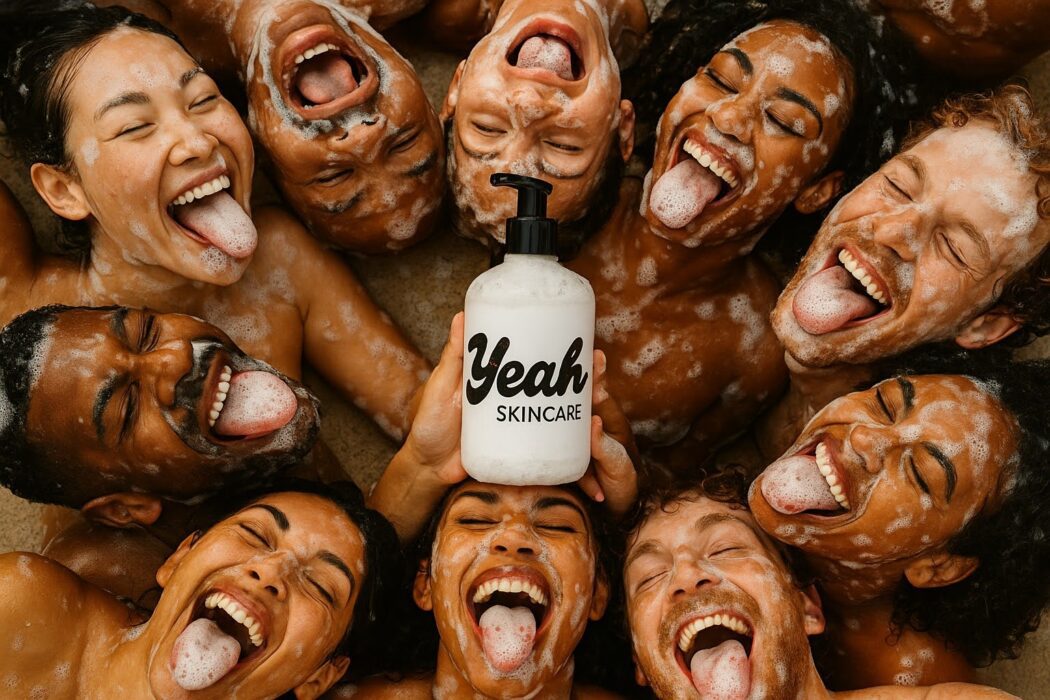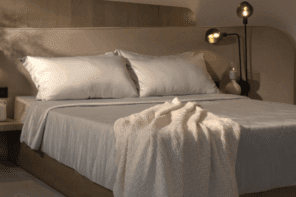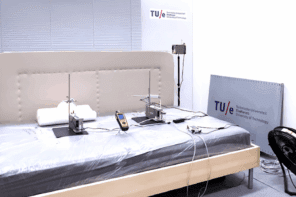Kaitlin Tilotta has made an unconventional career pivot, trading her dominatrix whip for what she calls a new kind of power play. The published author and scholar, who chronicled her healing journey through psychedelics during the COVID-19 era in her controversial book The Psychedelic Diaries, now channels that fearless energy into Yeah Skincare, a European clean-ingredient personal care line confronting harmful formulations and weak standards in the U.S. beauty industry.
At the center of this launch is her “Make America Clean Again” campaign, an initiative that pushes for stronger ingredient rules while challenging America’s outdated hygiene practices and lax oversight. Tilotta presents the campaign as more than a business venture. She casts it as cultural correction, redefining personal care as health and dignity rather than vanity.
From dominatrix to author to CEO, Tilotta’s journey represents transformation and reform. With Yeah Skincare, she combines entrepreneurship with activism, calling for enforceable hygiene laws and higher ingredient standards to protect communities. Her warning is blunt: when hygiene is neglected, history repeats itself. With the plague, typhus, and Legionnaires’ disease resurfacing, she cautions that failure to act risks dragging the nation back into public health emergencies once thought long past.
Academic Foundation Fuels Strategy
Kaitlin Tilotta’s path is rooted in academic recognition that sets her apart from typical lifestyle entrepreneurs. As an honorary psychology scholar with emphasis in research and leadership, she brings intellectual weight to beauty and wellness. This background shapes her grasp of consumer psychology and informs how she builds a luxury brand.
Her education, combined with years in professional domination, created an unlikely route toward business leadership. Skills once used to read behavior, manage dynamics, and deliver premium experiences now guide her company. Today, those same skills strengthen Yeah Skincare and fuel her call for higher standards.
Revolutionary Business Model Meets Luxury Advocacy
European companies dominate luxury beauty because of strict ingredient oversight and superior formulations. Tilotta recognized an opportunity to bypass high tariffs by storing European products stateside, offering Americans access to sought-after items without inflated pricing. This strategy delivers luxury quality at fair prices while addressing growing frustration with U.S. standards.
The regulatory gap is her sharpest differentiator. Europe bans thousands of ingredients, while the United States restricts fewer than twenty. Tilotta uses this contrast to make Yeah Skincare stand apart while pressing for reforms that protect public health.
Publishing Success Establishes Thought Leadership
Tilotta made her mark with The Psychedelic Diaries, a raw memoir chronicling her healing during the pandemic. The book positioned her as a fearless voice within the psychedelic renaissance, adding dimension to conversations on mental health, trauma, and cultural renewal. She is now drafting a second manuscript, an autobiography tracing her struggles and reinventions on the path to advocacy and entrepreneurship.
“Everything started going to hell in this country after psychedelics became illegal,” Tilotta stated. “That is when consciousness was criminalized, when free thought was replaced with consumer programming. Our art lost its edge, our culture grew hollow, and Americans stopped taking pride in themselves—even neglecting basic hygiene. The plague is now making a comeback like some retro trend nobody asked for.”
Her ability to merge academic perspective with personal storytelling resonates with readers and consumers who value honesty. By pairing psychological study with lived experience, she demonstrates how personal transformation can spark movements that demand dignity, health, and reform.
Luxury Market Leadership and Global Expansion
Yeah Skincare does more than democratize access to premium European skincare. Tilotta uses the brand to argue that hygiene is survival, not vanity. In a market where many “clean beauty” companies lean on vague claims or inflated prices, her model stands out for its directness.
“Cleanliness is not optional. It is essential,” Tilotta said. “Left, right, independent, or indifferent—you still need to bathe. With the plague and typhus making a comeback, hygiene is not a lifestyle choice, it is survival. Basic bathing and self-care are the minimum standard for public health. Anyone who ignores that drags the rest of the country down.”
Her method blends commerce with activism, unusual in the luxury sector. By refusing to separate reform from product, she presents Yeah Skincare as both a company and a demand for higher standards.
Her immediate priority is reshaping the American market, followed by expanding the message internationally. Supplier ties give her a pathway to build sales while also pressing for accountability across borders.
The Impact on the Luxury Industry
The luxury beauty industry continues to grow, with clean beauty leading as a premium category. Consumers increasingly seek products aligned with health and values, willing to pay more for perceived safety. Yet behind glossy labels remain dangerous loopholes that Americans face while Europeans are shielded by tougher rules.Tilotta confronts this reality directly. Through Yeah Skincare and the “Make America Clean Again” campaign, she exposes industry failures and insists that hygiene laws and stricter ingredient rules are urgent. By uniting commerce with accountability, she builds a model that the wider industry cannot ignore.
Her warning is stark. With outbreaks of plague, typhus, and Legionnaires’ disease already reappearing, America risks repeating its darkest chapters. The danger is greatest in lower-income and immigrant communities where poor sanitation magnifies vulnerabilities. Without immediate action, these conditions could become breeding grounds for disaster.
Through writing, advocacy, and business, Kaitlin Tilotta calls on America to take hygiene seriously. Either the nation enforces stronger standards now, or it faces a future where preventable diseases return not as history, but as present reality.





